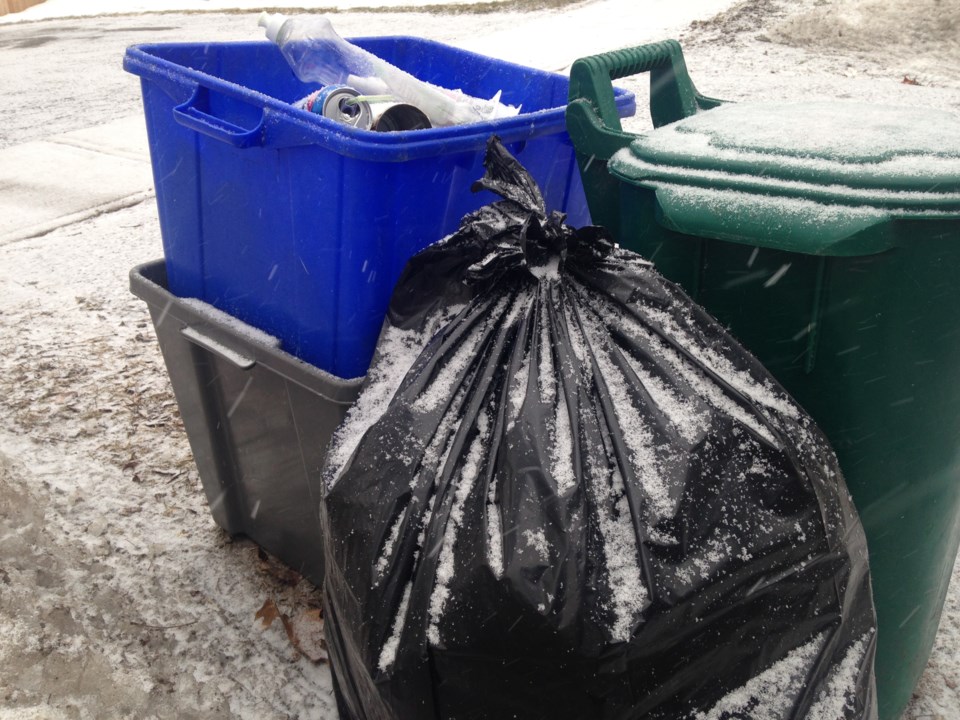Simcoe County will begin environmental, engineering and economics studies to develop an organics processing facility and waste transfer station in Springwater Township – work that will be needed to satisfy provincial environmental regulations and perhaps defend the plan at the Ontario Municipal Board.
“We have to hit all the benchmarks, dot all the I’s and cross all the T’s. We did the right thing,” Warden Gerry Marshall said in an interview.
“Rather than speculate and throwing darts, we will have specifics in terms of trees, traffic, technology and cost. Evidence-based planning is the way to go in my opinion.”
County council approved locating both at 2976 Horseshoe Valley Rd, a county-owned site located between Hwys. 27 and 400 – despite attempts from Springwater to stop the work.
The county, however, needs to rezone the site it owns and for that, it needs approval from Springwater, which has been vocally opposed to the county’s plan.
Mayor Bill French and Deputy Mayor Don Allen have repeatedly tried to delay the process, even suggesting county organics should be processed in Innisfil or Essa or perhaps outside Simcoe County minutes before the vote took place this morning,
They also argued the county shouldn’t proceed with environmental studies and a business case that would consider technology, demand and cost – which is what the county plans to do over the next year.
“The project is based on current population patterns,” said French, who argued the county should be looking south for a site. “This is premature and being fast-tracked for no good reason.”
French and Allen, however, were part of the county council that approved the process in March 2015 and set in motion the study that looked at 502 sites for an organics facility and a transfer station. That study narrowed the focus to the Springwater, Clearview and Oro-Medonte last year and finally resulted in the Horseshoe Valley Road site, located between Hwys. 27 and 400, as being the best.
Collingwood Mayor Sandra Cooper said the county’s site selection process included a lot of public input and environmental examination.
“We have learned from site 41 and had open public engagement. (That) has helped me in the decision to move forward and look for more information. We have to be good stewards,” Cooper said.
The proposal would use 11 acres of the 207-acre site and be designed to allow continued recreational use of the Freele Tract of the county forest.
The next phase of work looks at the site in spring, summer and fall, as well as technology options and projections of the cost of contracting out based on the Ontario market. A business case is to be presented to county council in spring 2017.
“I believe the methodology we chose was flawed,” said Allen, who was on council when it approved the process for site selection. “We need to revisit… and look at other sites closer to demand, to traffic and other services.
Allen also said the county shouldn’t be focused on managing its own waste – a policy that dates back several years – but instead considering to keep trucking it out if that’s cheaper. The county’s organics are now processed in Hamilton.
“I believe we are to be good stewards and should be looking after our own waste,” said Innisfil Deputy Mayor Lynn Dollin. “I understand the idea of cost, but to me this is a very small part of what we should be considering. The most economical (way) is to dig a hole in put everything in it.
“It’s not so much how cheaply can we do it. When it comes to picking technology, I’ll vote in favour of the best. We owe it to ourselves to invest in the best.”
The county’s environmental assessment will examine the site in spring, summer and fall, said the county’s environmental general manager Debbie Korolnek as it assesses factors including water, winds wildlife habitat impact.
The proposal would use 11 acres of the 207-acre site and be designed to allow continued recreational use of the Freele Tract of the county forest.
The county is forecasting saving $13 million over the next 20 years, based on current contract and trucking costs.
The county will meet with neighbouring landowners tomorrow night.
Two public information sessions are slated for April 19 at the Simcoe County Museum – at 2 p.m. and at 6 p.m.
Further approval is required from the Ministry of Environment and Climate Change, as well as from Springwater Township on zoning and site plan.



